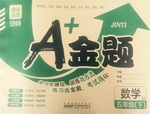题目内容
WHAT happens to a teenage kid when the world he thought he knew suddenly changes? Find out in Little Brother by American author Cory Doctorow. It is a fascinating book for a new generation of sci-fi readers.
Marcus Yallow, 17, from San Francisco is much more comfortable in front of a computer than obeying the rules of society. Smart, fast and wise to the ways of the networked world, he has no trouble outwitting (骗过) his high school's monitoring system. This way he and his friends get to head off to play a popular online game in real life.
While they are playing, a bomb explodes on the Bay Bridge. Marcus stops a military vehicle to get help for his injured friend, but this simple act throws him into a Department of Homeland Security (DHS) secret prison. There he is treated as a possible terrorist. He is eventually let go after four days, but his injured friend disappears.
When he returns, Marcus discovers that there are many "security measures" in place and that now all citizens are treated like potential terrorists. While some consider this government action necessary for public safety, Marcus sees this as a complete destruction of the rights he is supposed to have as a citizen.
He knows that no one will believe his story, which leaves him with only one thing to do: to take down the DHS himself. He helps organize a large network called Xnet to spread the truth, anonymously (匿名地).
The book presents a young man who is irresponsible, but learns about himself, and grows, in the course of the story. As part of this learning and growing he becomes aware of very serious issues about his society.
What kind of article does this passage belong to?
A. A fascinating story. B. A book review.
C. News report D. A TV programme
The underlined word destruction in the passage means .
A. damage B. reward C. ruin D. protection
Marcus Yallow was sent to prison because .
A. he killed his friend
B. he bombed a military vehicle
C. he did something that a possible terrorist could do
D. his injured friend disappeared
From the second paragraph we can infer that .
A. Marcus Yallow is much more comfortable obeying the rules of society
B. Marcus Yallow is smart, fast and wise in real life
C. Marcus Yallow always plays online games in real life
D. Marcus Yallow is expert at the network world
In the end of the book, Marcus Yallow .
A. is supposed to be more irresponsible
B. becomes aware of very serious issues about his society
C. presents a young man who is irresponsible
D. plays a popular online game in real life
【小题1】B【小题1】C【小题1】C【小题1】D【小题1】B
解析:
略

 A加金题 系列答案
A加金题 系列答案 全优测试卷系列答案
全优测试卷系列答案Everybody hates rats(老鼠). But in the earthquake capitals of the world—Japan, Los Angeles, Turkey—rats will soon be man’s new best friends.
What happens after an earthquake? We send in rescue dogs. Why? Because they can smell people. They help rescuers to find living people. But dogs are big and they can’t get into small spaces. So now a new research project is using a smaller animal to save lives: the rat.
How does it work? First, the rat is trained to smell people. When this happens, the rat’s brain gives a signal(信号). This is sent to a small radio on its back and then the rescuers follow the radio signals. When rat’s brain activity jumps, the rescuers know that someone is alive. The rat has smelled that person.
Although there are already robots which can do this job, rats are better. Christian Linster at Cornell University, New York, says, “Robots’ noses don’t work well when there are other smells around. Rats are good at that. ” Rats can also see in the dark. They are cheaper and quicker to train than dogs, and unlike robots, they don’t need electricity!
The “rat project” is not finished, but Julie Ryan of International Rescue Corps in Scotland says, “It would be fantastic. A rat could get into spaces we couldn’t get to, and a rat would get out if it wasn’t safe. ” Perhaps for the first time in history, people will be happy to see a rat in a building, but only after an earthquake, of course.
1. In the world earthquake capitals, rats will become man’s best friends because they can ______.
|
A.take the place of man’s rescue jobs |
|
B.find the position of people alive who are trapped in buildings |
|
C.serve as food for people alive who are trapped in buildings |
|
D.get into small spaces |
2.From the third paragraph we know the rescuers can judge a person is alive by ______.
|
A.the noise made by the rat |
|
B.the rat’s unusual behavior |
|
C.the signal sent by the radio on the rat’s back |
|
D.the smell given off by the person |
3.In doing rescue jobs, ______.
|
A.rats smell better than dogs |
|
B.dogs don’t need to be trained to smell people |
|
C.robots’ sense of smell can be affected by other smells around |
|
D.rats can see in the dark and they are smaller than robots |
4.Rats have all the following advantages EXCEPT that ______.
|
A.they are more fantastic than other animals |
|
B.they are less expensive to train than dogs |
|
C.they don’t need electricity |
|
D.they are small and can get into small places |